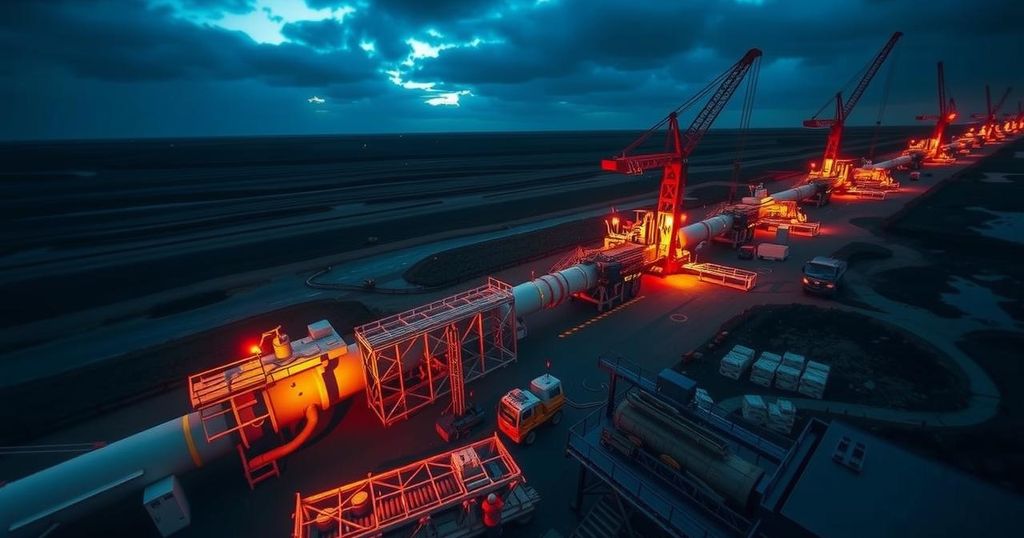The East African Crude Oil Pipeline (Eacop) Project has reached 47.1 percent completion, with significant progress in pipe-laying activities across eight regions since its launch in February 2022. The project, a collaboration among the Tanzanian and Ugandan governments, TotalEnergies, and CNOOC, aims for completion by July 2026. It has generated significant employment opportunities and economic benefits for local communities, while maintaining a focus on environmental protection.
As of September 2024, the East African Crude Oil Pipeline (Eacop) Project, which extends from Uganda to Tanzania, has achieved a construction completion rate of 47.1 percent. Since its inception in February 2022, the project has been actively engaged in laying pipes across eight regions. This major undertaking is a joint venture where the governments of Tanzania and Uganda each maintain a 15 percent stake, TotalEnergies holds 62 percent, and CNOOC possesses an 8 percent interest. With its total projected cost estimated at $3.5 billion, the project is being developed with thorough logistical and environmental considerations to mitigate impacts on local ecosystems and communities. During a recent press conference, Mr. Asiadi Mrutu, the project coordinator for the Tanzania Petroleum Development Corporation (TPDC), affirmed that construction remains on schedule, with the anticipated completion date projected for July 2026. Mr. Mrutu stated, “We are on the right track, and construction will be completed on schedule, as per the contract.” As of now, 9,858 residents—99.3 percent of those eligible—have received compensation totaling Sh35.1 billion. Furthermore, the project has created approximately 8,694 temporary jobs for Tanzanians, with these employment opportunities expected to cease following the project’s completion. Mr. Mrutu also highlighted several advantages offered by the project to Tanzania, which include revenue generated from permits, fees, and land taxes as well as the procurement of local services valued at Sh821.1 billion. In terms of staffing, 148 workers will be engaged permanently once the project is complete, with 114 of these workers being Tanzanian and 34 from Uganda, who are currently receiving training. Moreover, Mr. Mrutu emphasized the necessity of protecting the project’s infrastructure, noting that the residents of the affected areas, along with regional governments, are actively collaborating to safeguard facilities against damage. He also expressed a commitment to stakeholder engagement, inviting community members to participate in discussions to ensure their perspectives are considered throughout the implementation of the project.
The East African Crude Oil Pipeline (Eacop) is a significant infrastructure initiative that aims to transport crude oil from Uganda to the port of Tanga in Tanzania. The project has garnered substantial investment and involvement from both governments and private entities. With a focus on minimizing environmental impact and facilitating local economic development, the undertaking is poised to provide employment opportunities and enhance government revenue through various channels. Understanding the project’s progress is crucial, given its potential economic and ecological implications for the region.
In summary, the East African Crude Oil Pipeline (Eacop) is progressing steadily towards its completion, currently at 47.1 percent as of September 2024. With a commitment to environmental sustainability, economic benefits, and community engagement, the project is on schedule to finalize construction by July 2026. As it advances, the Eacop project exemplifies a collaborative effort between multiple stakeholders, emphasizing the importance of local involvement in infrastructure initiatives.
Original Source: www.thecitizen.co.tz







